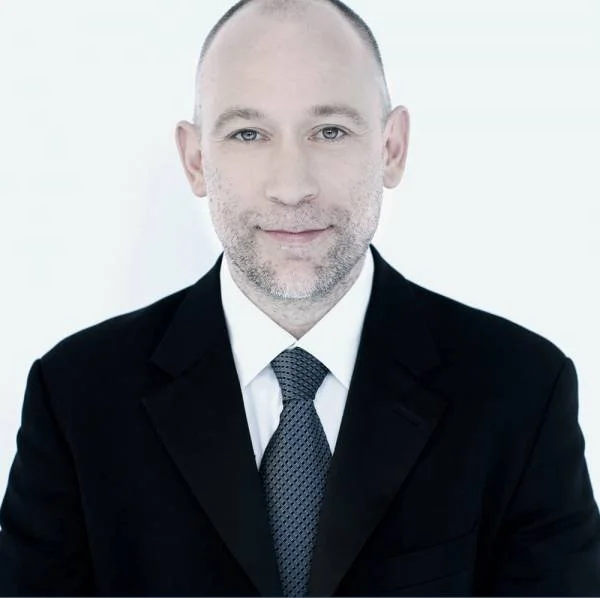Elinor Frey takes a deep dive into Bach's Cello Suites at Early Music Vancouver's new LUMEN Festival
Seattle-born, Montreal-based string star takes a fresh approach to the masterworks
Photo by Elizabeth Delage
Early Music Vancouver presents the LUMEN Festival from January 12 to 14 at various venues
THEY’VE BEEN PLAYED by almost every 20th- or 21st-century master, topped the classical album charts, and survived 200 years of neglect to emerge as among Johann Sebastian Bach’s most emblematic compositions. But are the six Cello Suites really all that?
Should you ever feel tempted to question their worth, Elinor Frey wants to have a word with you.
“Without a doubt, they’re one hundred percent the very core of cello repertoire, for all cellists of all kinds,” the Seattle-born, Montreal-based musician enthuses, in a telephone interview before heading here for Early Music Vancouver’s new winter series, the LUMEN Festival. “People who teach children, people who play in orchestras, people who are soloists: all kinds of people who play the cello are confronting and engaging with this music. So I would say it’s the most widespread music for all cellists, and very appreciated by the general public overall.
“And they’re masterpieces, every single movement,” she adds. “Of course, I have my pet favourites, but every movement is wonderful. It’s a pleasure to hear and to play.”
There’s a tendency for cellists to work backward to Bach: Yo-Yo Ma, whose 1983 recording of the Cello Suites helped make him a household name, had already established himself among the cognoscenti with emotive recordings of Joseph Haydn and Ludwig van Beethoven, while Pablo Casals, who effectively rediscovered Bach’s cello music in the 1930s, recorded late 19th-century works by Johannes Brahms and Antonín Dvořák before tackling the master of Leipzig.
Frey’s trajectory has been somewhat different. She’s a recognized authority on Bach’s contemporaries Antonio Vandini and Evaristo Felice Dall’Abaco, while her research into early Italian music for the cello means that in some ways she’s working forward to the Cello Suites, and this gives her a different perspective on their significance. Their magnificence is undiminished, but for Frey they’re part of a larger historical continuum rather than a radical and abrupt departure from past practice.
“At the time that Bach was writing for the cello, it was actually a somewhat new instrument,” she points out. “The bass instrument in the violin family had existed for a while, but this certain technology of winding metal around the lower strings meant that the low instrument could be a bit more capable of playing virtuosically in a solo role, as well as being the bass voice in an ensemble. In fact, when Bach wrote his Cello Suites, it had only been about 30 years since the first music was penned with this instrument in mind.”
There was, however, a large body of extant work for the viola da gamba, which has much the same range as the cello, most of it written by French composers.
“Bach was looking a lot to this mix of French suite influences with an Italian instrument and way of playing,” Frey says. “So it’s a typical German mixed style, both Italian and French. In terms of my background, having started with the origins of the cello and having worked my way up and all around that music, understanding how it all started, I think, is nice.”
Frey adds that she also brings her understanding of contemporary composition to Bach—her 2019 release Guided By Voices includes works by Montreal improviser Isaiah Ceccarelli and Toronto composer Linda Catlin Smith, among others—along with a fair bit of extramusical research into the manners and mores of the Baroque era.
“When I play music, especially Baroque music, I learn as much about it as possible,” she explains. “So, for sure, I try to understand the origins of each dance movement: the typical aspects of the minuet, and what the steps might have been, and what it might have been used for. Or the allemande: was it the entry of a VIP, with more poise and more of a walking type of movement? Or the history of the saraband, how it was first faster and then became tamed by the French into a more subdued, serious, and grave piece. Knowing all the origins and how each dance was transformed over the 17th and 18th centuries helps you pick up some of the clues in the music—and then when you are seeing more in the music, you can communicate that more readily to the audience.
“Learning about the music I play energizes me and makes me want to practise more and just stay in the game,” she adds. “Sometimes I want to tear my hair out, but it’s certainly interesting, and I want to keep going and keep loving it.”
Alexander Weimann also appears at the new LUMEN Festival.
Those interested in hearing Frey play three of the Cello Suites are in luck: while her January 14 concert at the Vancouver Unitarian Church is sold out, a January 12 concert at the Vancouver Playhouse has just been announced.
Other concerts in Early Music Vancouver’s new LUMEN Festival offer equally unusual and enlightening demonstrations of how Baroque music continues to grow. Among them, on January 13, Pacific Baroque Orchestra artistic director Alexander Weimann will switch from harpsichord to organ to present a truly extraordinary concert experience at West Vancouver United Church: his matinee performance, A Prayer for Peace, will be entirely improvised, albeit in the Baroque musical language that he has mastered. Bach, a great improviser himself, would surely approve.














